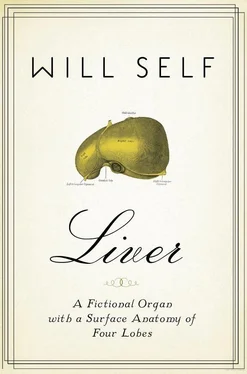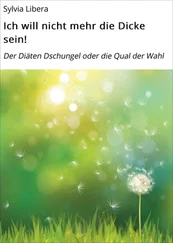It all reminded Joyce of the Widder, and those four strange days when she was — what? Reborn — resurrected? She didn’t believe any of it, not for a second ; all she knew was that she had come to hate hotels more than she feared the grave. She rose, checked herself in the mirror, picked up the key with its heavy-testicle fob from the liverish top of an armoire and left the room.
It was the revelation of Marianne Kreutzer’s body that made Joyce anxious, more than the exposure of her own. She found it difficult — no, impossible — to conceive of this elegant Swiss woman, childless and of a brittle age, being comfortable in her own skin — even if it was only under the eyes of an older, less beautiful woman.
This anxiety was misplaced; the spa at the Blume was a clinical unit rather than a leisure centre. There was to be no girlish disrobing beside troughs of carefully graded rocks, or preliminary chatting over peach tea and fashion magazines. Instead, they were interviewed by a nurse-alike in a starched white tunic, who sat behind a metal desk upon which lay blood-pressure equipment and a stethoscope.
She was a tough-looking blonde with no English, so Marianne translated, and Joyce declined die Dickdarmberieselung, das Enthaarungsmittel, die Druckstrahlmassage and especially die Abbl ä t-terung . In German these treatments sounded scarily invasive: a scouring out of her body, then the decortication of what little remained. Joyce settled instead for the basic package: a dunk in the hotel’s own sulphur baths, followed by a brief laying on of trained hands.
‘She is asking to me,’ Marianne relayed, ‘if you are having the heart conditions of any kinds?’
Joyce checked herself from saying ‘only heartlessness’; it was a problematic sentiment to translate; besides which, it had meaning for herself alone.
She and Marianne separated. Joyce changed in a cubicle, and was then led down sloping white-tiled tunnels into the hot bowels of the hotel. Here she was submerged in the shit-tangy waters that bubbled and farted in a giant stone basin. The orderlies, in their plastic aprons, were unsmiling butchers and hustled her along: another body part to be hosed down and then wrapped. The masseuse — whose developed sense of her clients’ modesty caused her to work on one portion of their bodies at a time — gripped Joyce’s calves as if she were squeezing giant toothpaste tubes and exclaimed, ‘ Ach! So dick! Sie H ä nd vil Muskl ä!’ Joyce, startled from her drowse, reared up, and the woman scattered confused English: ‘Madam, so sorry, I am only that you have very physical, ja ?’
At last the peach tea, the recliner, the terry towelling. Lying in soft moist splendour, ‘very physical’ was, Joyce considered, a perfectly apt description of how she felt. The Kursaal was spartan — white walls hung with black and white photographs of highly toned naked bodies, strip lighting rebounding from the chequer board of white and black floor tiles — yet to Joyce it all seemed suffused with a roseate glow. Pleni suni coeli et terra gloria tua. Heaven and earth are full of Thy glory . Joyce hadn’t thought she would ever again experience such a complete mingling of calm mind and easeful body.
When Marianne Kreutzer came in, her hair in a towel turban, a second wrapped beneath her arms, Joyce amazed herself. ‘Oh, Marianne,’ she gushed, ‘this is heavenly! Thank you.’ By way of acknowledgement, she unwound her hair, dropped her other towel and stood bare before Joyce’s recliner.
What did I expect? The cruel scar left by the barbed bracelet of a Catholic sect? Or else fierce preservation — a body plumped, filled, implanted, and so engineered into artificial youth? Clothed, Marianne Kreutzer was so poised ; yet, here it was; the sagging breasts and scrawny arms, the blue veins straggling through cheesy thighs and the pucker of cellulite on drooping buttocks.
‘Come,’ Marianne said, extending her left hand. Had they always been there — the diamond solitaire engagement ring, and the dull circlet of a platinum wedding ring? Or had Marianne slipped them on as she slipped her towel off? ‘Come, please, Joyce, show yourself to me also, please.’
There was a full-length mirror by the door that was wide enough for the most brassy cream pot of a Zürichers, and Marianne led Joyce to this. Joyce didn’t understand what this ritual was — yet grasped that full revelation was essential. Was it gratitude or pride that made it so easy to abandon a lifetime’s reserve and divest herself? She could not have said.
They stood there looking at themselves, until Marianne Kreutzer said, ‘Ach, Joyce, you are too beautiful. Really, too beautiful. This, I am thinking, is the miracle.’
As Marianne had predicted, Ueli Weiss telephoned the following week to ask Joyce if she would accompany him to the special Sechsel ä uten concert at the Opernhaus. Joyce was inclined to turn him down; he had, she felt, so neglected her. However, he smoothed his dereliction over with pat English phrases: ‘I’ve been rushed off my feet,’ he said, but it was ‘time we caught up’.
Employing equally formulaic language — ‘It would be a pleasure’, ‘At what time?’, ‘I’ll look forward to it’ — Joyce imposed a week-to-view grid on the shapelessness of her current life. For if not there, on that green coverlet, beneath that Alpine landscape, then when? My father’s death at Ypres had surely, given the odds, been inevitable. Yet he survived. And my own, also — now there’s nothing ahead of me to look away from. I’ve been shifted into some other. Everything is possible — but nothing. heard.
Joyce replaced the handset and twitched the curtain to stare across Saatlenstrasse. There was a noticeboard on the pavement opposite; the Zürich Nord branch of Die Heilsarmee had placed details of their services and their youth club behind glass, together with pious homilies printed on cards cut exactly so and edged with cotton wool to make little clouds of godliness. The biggest cloud — which Joyce, having time to kill, had already read several times — proclaimed, ‘ Hilf mir zu erkennen, oh Gott, dass die Dunkelheit in Wirklichkeit der Schatten deiner liebevoll augestreckten Hand ist .’
She wondered if Sandra — who stood beside the noticeboard, and whose sea-green, incorruptible eyes were levelled at Joyce’s window — knew enough German to understand this; to grasp how, according to the North Zürich branch of the Salvation Army, God played with insect humanity: they scuttled about in the spring sunlight, then He plunged them into abject terror by blocking out the sun with His august right hand.
Sandra still wore her ivory-white hair defiantly shoulder-length; while her black slacks and tan suede jacket suggested, to her former colleague and friend, that her retirement was being spent in coffee bars discussing airy abstractions. Sandra, whose lifetime of ministering to childflesh — in between pushing out some of her own — had bequeathed to her more practical support than she could possibly make use of . Sandra, who had none the less eschewed the assistance of her grown children — all competent medics themselves — and booked her own ticket, then driven herself to the airport and enjoyed the short flight despite the gravity of her mission. Sandra, who, with equal efficiency, had now taken a cab here, to Oerlikon.
To forestall the agitation of the buzzer, Joyce got her own jacket, snatched up her shopping bag and skipped down the rubber treads of the communal stairs. She tossed a pan-European ‘Hi’ to Astrid Pfeiffer, who was playing out on the landing with a lubriciously pink and naked doll. Joyce shopped daily — for freshness, and to give herself something to do; this encounter with Sandra would be like the others — with Miriam, with Iris, with Ruth — screened off by nylon mesh.
Читать дальше












